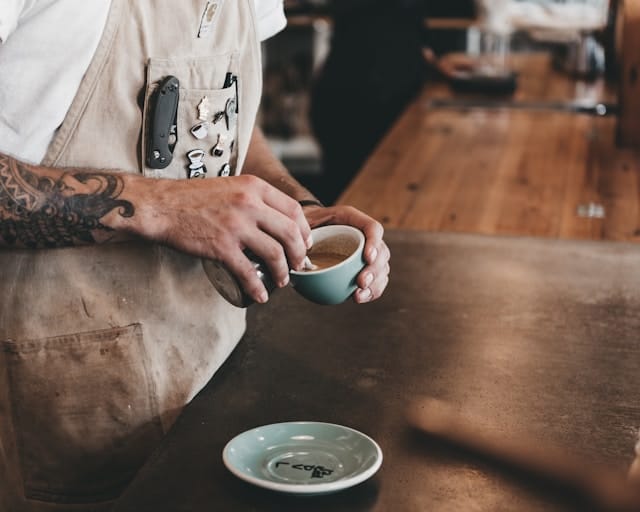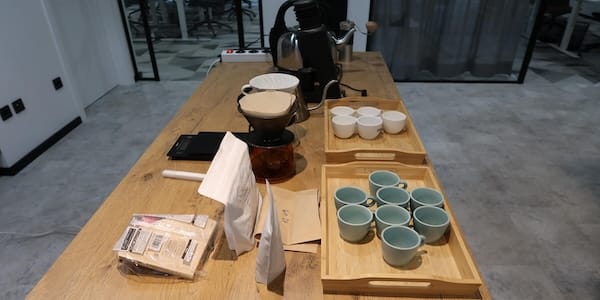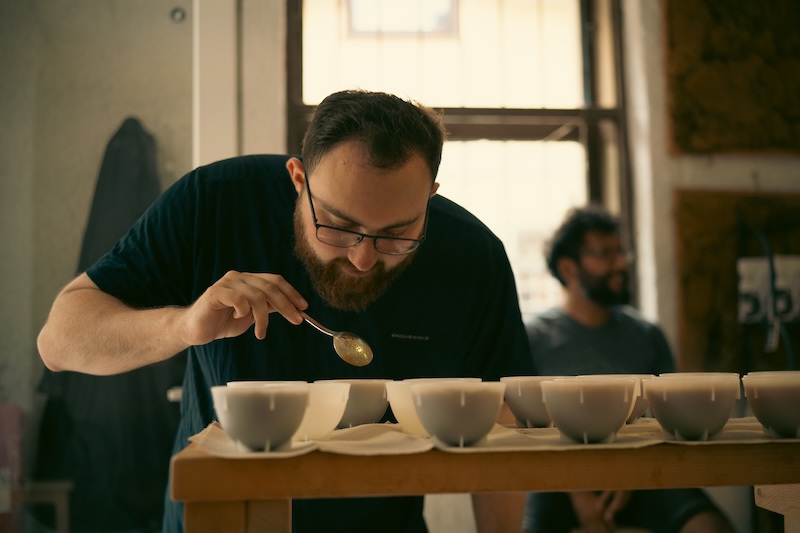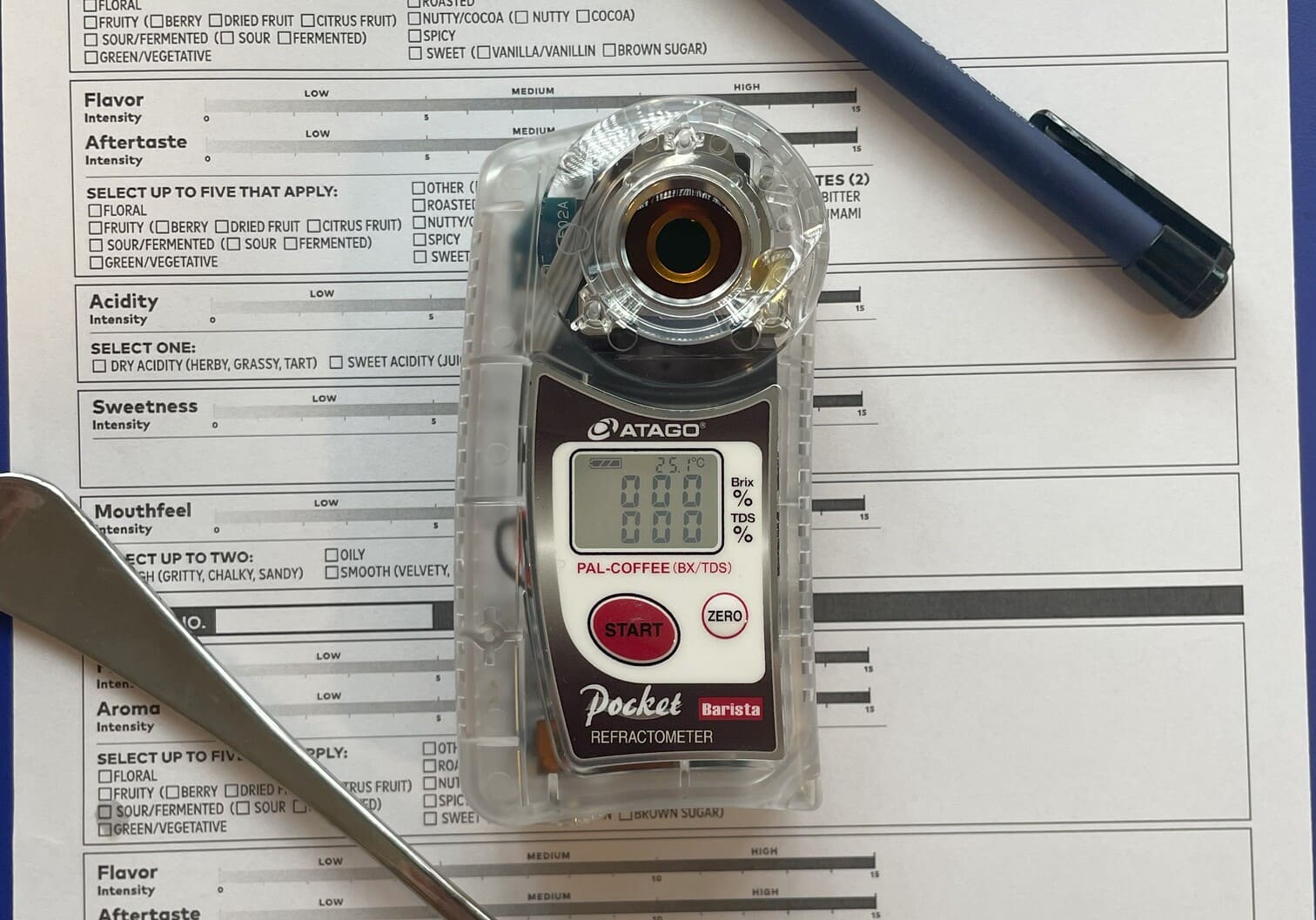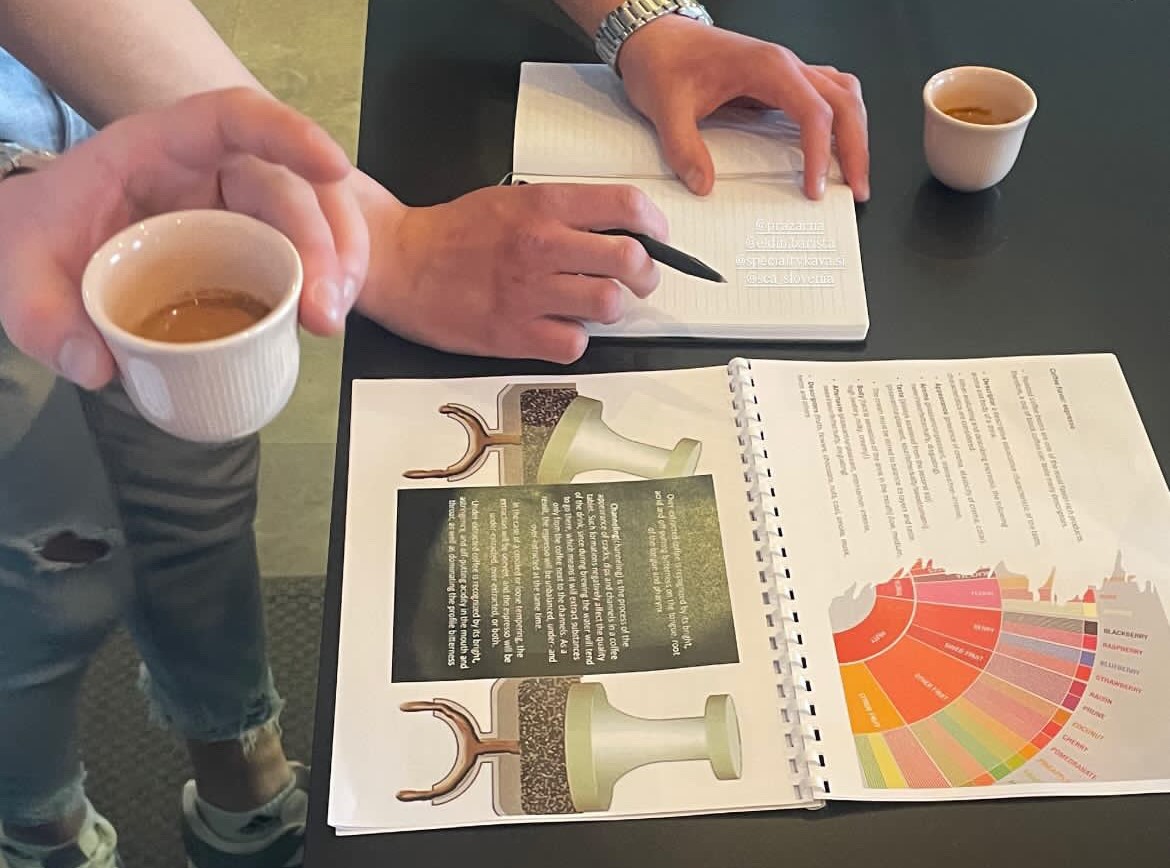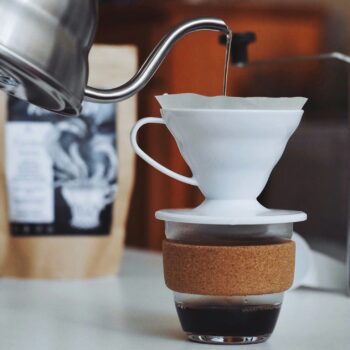ALL POSTS
ALL POSTS
Coffee from Brazil: an Overview
9 min read
Last edit: Jan 9, 2025
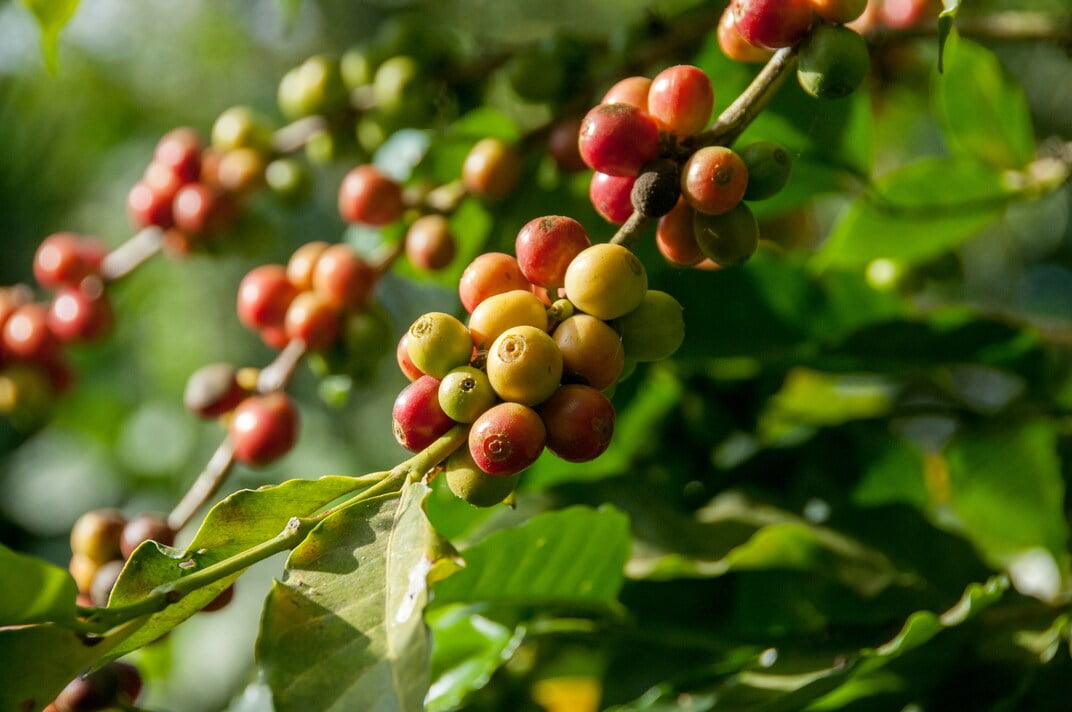
If you ever had literally any kind of coffee beverage you probably had it made from beans produced in Brazil. And that shouldn’t come as a surprise as most of the coffee of arabica species comes from highlands of lush regions of the Republic of Brazil.
In this read you will find out all the essential information about Brazilian coffee, what makes it such a common find in coffee products worldwide, whether it is their specialty coffee in Brazil, and how to choose coffee from Brazil. As a bonus to all that we have contacted Ziga Povse, an expert on Brazilian specialty coffee and trader bringing the best there is to the European market.
Now, with a cup of coffee in hand, let’s embark on a journey to discover Brazilian coffee.
History
Firstly, it is important to know how coffee even got to Brazil. As the story goes, the responsibility of bringing coffee to Brazil is on one Francisco de Melo Palheta who was on a mission to settle a dispute over land between aristocracy in French and Dutch Guianas. However, he also intended to smuggle coffee plants that were heavily guarded. Remember, back then coffee wasn’t that widespread globally yet.
Some scheming and romancing a local governor’s wife’s past, Francisco managed to secure some seedlings of the trees that, according to the legend, became progenitors of the current industrial coffee power that is Brazil today.
The first coffee plantation was established in the Rio De Janeiro area around the 1770s. Soon enough, in the 1800s, a boom in coffee production started in Brazil. 20 years later Brazil exported a modest 770 kilos of green coffee beans to Europe. 20 years more and the exports went well, over 5000 tons.
Steadily coffee plantations were established in regions of Minas Gerais, São Paulo, Espirito Santo, Parana, Baja, and Randonia. In less than a century time Brazil became a coffee-producing powerhouse and still holds this title, being only second to Vietnam in robusta production. In arabica production, Brazil is second to none.
Interestingly, in the 20th century, there was a case of mass green coffee drowning to stabilize the price of coffee. Brazilian farmers were producing so much coffee that there was just too much of it and if drastic measures wouldn’t have been taken the price per kill would go below the cost of production itself!
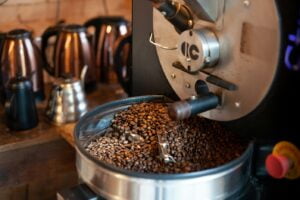
Some numbers
Let’s talk about numbers, just for the sake of general curiosity.
As of the end of 2023, Brazil produced a total of over 54 million 60-kilo bags of green coffee beans according to Statista. At the moment of writing this article Brazil is expected to yield up to 60 million of 60-kilo bags in 2024, though recent news of premature blooming and therefore earlier harvest suggest that both yields and quality across the board just might be worse than last year.
As you can imagine, being a leader in production and trade, Brazilian coffee commodities affect the price of arabica coffee worldwide. When there is a fluctuation in prices for coffee it is often connected to some news (or speculations) related to harvesting Brazilian crops.
All that being said, it is only natural that Brazilian coffee is a widely used commodity, found in practically any coffee product there is on a market. From instant coffee and cheap store-bought commercial blends to high-end specialty coffee bags by world roasting champions.
Is coffee from Brazil dull?
Stereotypically, coffee coming from Brazil is associated with dull, unbalanced and toasty flavors. This is due to a long period of time when green coffee was marginally roasted dark resulting in bitter and harsh brews. However, with the emergence of third-wave coffee shops and specialty coffee culture we now know that regardless of origin coffee can be complex, pleasantly acidic and, most importantly, diverse.
Coffee from Brazil is not an exception. Sure, you can still find plenty of good old dark roast Brazil. But if you ask your barista about specialty coffee from Brazil they will show you a bag to take home and try out.
Need a list of places to look for specialty coffee from Brazil? We got you covered with our guide of the best Slovene specialty coffee roasters.
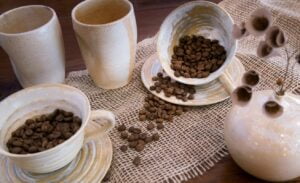
Terroir, varieties and processing
Now, let’s talk about farmland itself. Flat highlands in Brazil allow a mechanized harvest method, a know-how that is almost exclusively used in Brazil. Huge plantations under a South American sun are yielding crops of arabica coffee beans such as bourbon, maragogipe, acacia, red and yellow catuai, red and yellow caturra, and many others.
Every now and then new varieties are discovered and cultivars are created to bolster ever-growing yields and strengthen crop resilience towards disease and other outside forces such as droughts. You can learn more about them by discovering the World Coffee Research catalog.
Traditionally coffee in Brazil is processed in a way called Natural (Natura or Dry). That means that after mechanical or hand-picked harvest, coffee cherries are dried either on concrete patios or on African-styled “beds”. This gives the coffee more sweet and juicy characteristics.
Washed coffee can also be found, often at a much higher per kilo price and higher acidity levels due to the costly processing technique. The washing method involves the usage of large quantities of water, as well as other facilities. After the washed method coffee retains much of its original flavors with almost no additions, being more acidic and light on the tongue.
Experimental processing methods such as anaerobic or carbonic maceration are taking routes. The results of these techniques differ with anything from vinegary and astringent to cognac-like boozy lots.
A combination of farming practices, technological and industrial approaches, processing methods used, and varieties grown results in a wide range of flavor profiles found in Brazilian coffee. Anything from citrus-like and juicy coffees from Cerrado to commonly known chocolaty and nutty blends from Mineo Jerais.
Regardless of the above-mentioned nuances, Brazilian coffee is on average of high quality, perfect for everyday espresso, and usually used in commercial blends as a base to put other flavors from other origins on. The highest quality of Brazilian coffee comes as specialty-grade beans. Always more complex in flavor, better balanced, and with a stereotype-shattering fruity aroma.
Robusta is produced as well, although at a smaller capacity. The recent cuppings of this species suggest that soon enough we just might be getting an equivalent to specialty arabica, although more bitter and caffeine-potent.
Is there a way to define a unique flavor for each region? Well, not really, since there are just too many factors in play. Still, as a rule of thumb, coffee from Brazil is nutty, chocolaty, caramel-like, and mildly fruity.
Short guide to choosing Brazilian coffee
Now, let’s talk about how to choose coffee from Brazil. Firstly, we need to understand what kind of flavors we appreciate in coffee. Secondly, how the chosen coffee is going to be prepared. There are too many brewing methods and too many various coffee lots to find a perfect match for each and every one in one article. So, we will recommend several keywords to look for and match with the most popular brewers.
Alright, so for an everyday smooth, medium-to-thick body espresso-based drink with little to no acidity go for dry processed beans from Espirito Santo or São Paulo. On average, coffee from these areas of Brazil is chocolaty, caramel-like with alluring cocoa and roasted nuts aroma.
If you are going for a more fruity and acidic espresso find some coffee from Minas Jerais, Cerrado to be more specific. Medium body, citric, and sweet with no intense aftertaste. And floral aroma is there as well.
Brewing filter coffee? Go for anaerobic lots. Those will result in rich nutty notes balanced with fruity and boozy flavors coming up in your drink.
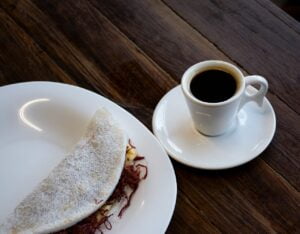
Interview with Ziga Povse from Rjavi Tucan
To give you some more insight into Brazil and coffee from that beautiful origin we spoke with one and only Ziga Povse, specialty coffee importer and expert.
– Hey Ziga! Thank you for answering a call to chit-chat.
– Hi Lev, my pleasure.
– I have prepared some questions regarding coffee from Brazil and the first one is this: recently we have seen a surge in experimental and funky coffees coming to cafes and home bars. Can we expect more such coffees from Brazil?
– Definitely, there has been a surge in experimental post-processing in Brazil, with many outstanding coffees landing on the cupping tables. Many producers are driven by the pursuit of quality and prioritize creating unique profiles. This can be seen already before the harvest when many producers conduct quality mapping, a process where they discover which processes will be the most suitable for specific lots.
– So is it fair to assume you are bringing anything exceptional to Europe this season?
– I’ve already had some cuppings with some spectacular coffees on the table, and it’s my plan to bring these lots to European roasters. There is a stigma attached to Brazilian coffee due to the past when quantity was the driving factor, so many roasters are still unaware that Brazil can offer so much more than just the classic chocolatey/nutty profile. It’s my mission to change this perception, so to answer in short; yes, I’ll again be bringing some spectacular Brazilian microlots. I can’t wait to slurp on the fresh crop myself. Bring the goodies in!
– But how are farms in the region you are working in holding up? What are the challenges and do you see them being addressed?
– In Brazil, the challenges this year were significant due to strange weather patterns. Pre-harvest rains caused many cherries to dry out, so the coffee cherries were not so uniform. The harvest started a bit earlier because of that, and the bean size was impacted as well, resulting in a smaller screen size. In spite of that, the producers are harvesting coffee with many of them already finishing.
– Coffee from Brazil is still associated with mild, slightly bitter, chocolaty, and caramel-like coffee. What lot would you recommend people try to discover more flavor diversity in coffee from Brazil?
– Although the classic profile is still predominant in roasteries’ menus, many of them have already started offering more unique coffees. One of my favorite lots this year was Lot 8 by Fazenda Semente, which you can find at Kaffeeterria in Villach and Kava Kavana in Zagreb – a very fruity and simultaneously sweet coffee. Raoni Velvety by the Barbosa family is another experimental microlot that you can taste in Mala Pražarna. Banibeans, Paul & Bohne, and Mala Radionica are roasting Cocada, one of the favorites in 2023. All of these coffees are unique, experimental microlots.
– I do remember trying those lots you mentioned and I cannot agree with you more. Hope the fresh crop brings even more coffee that will break the image of Brazilian coffee being dull. Thank you for sharing Ziga!
Conclusion
It becomes obvious that Brazil holds a lot of potential, offering perfect lots both for classic nutty profile lovers and acidic specialty coffee aficionados.
Due to the sheer amounts of coffee produced, Brazilian lots are rarely expensive. So next time when you are looking for an everyday coffee do try getting yourself a treat in the form of tasty specialty coffee from Brazil.
Would you like to learn more about other coffee roasters in Slovenia? Here are the guides.




